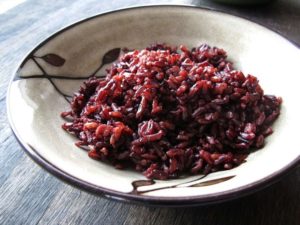Tea, also known as chai in the subcontinent, is a popular beverage worldwide, especially in India and Pakistan, consumed as breakfast and with evening snacks. It contains several health benefits such as aiding in digestion, regulating blood sugar levels, and improving heart health.
Many people may consider it as masala chai. It is made by boiling water and milk and adding cinnamon, ginger, and some spices, such as black pepper and cloves.
Regular chai is made similarly, the difference being it does not contain any spices. However, this article will mainly refer to the masala version of chai.
Coming back to the health benefits associated with chai, there are various of them to be discussed. There is evidence that chai can improve one’s heart health.
Cinnamon, a common ingredient in many chai recipes, can lower blood pressure and reduce cholesterol levels. Research recommends consuming at least one to six grams of cinnamon and to prepare homemade chai free from added sugars to yield the best benefits.
There is also some evidence that chai can help reduce nausea and aid in digestion. The primary ingredient responsible for this is ginger, which is particularly effective during pregnancy.
In addition, chai also contains black pepper, cloves, and cinnamon, which have antibacterial properties that can improve one’s digestive system by preventing bacterial infections.
The list of benefits does not just end here. Chai can help promote weight loss, too, as it contains protein in the form of milk, which reduces hunger and makes one feel fuller for a more extended period, preventing overeating and snacking through the day.
Studies also show that black tea can promote fat breakdown, and consuming three cups daily can help prevent one from gaining weight or unwanted belly fat.
It is important to note that one should be vary of consuming high levels of added sugar, which would negate the benefits stated above.
Now you might be wondering how much chai you should consume each day to yield the above-mentioned health benefits.
At the moment, there is no established daily dosage recommendation as to how much chai one should drink to reap those benefits as most research focuses on the benefits of each ingredient individually, rather than chai as a whole.
It is also essential to know that chai contains some caffeine, which might not suit some people as consuming excess caffeine can lead to unpleasant effects such as anxiety, increased blood pressure, and migraine. It is also particularly risky to consume during pregnancy.
Therefore one should be cautious of taking too much caffeine; however, the regular intake of chai daily is unlikely to surpass these recommendations. Besides, those with low blood pressure or even low blood sugar levels would want to watch and limit their ginger intake.
Lactose intolerant people should also be cautious of drinking too much milk in their chai and switch to plant-based milk.
Chai is a relatively easy beverage to make with a simple method. Boil some water and put the teabag into it until it turns dark.
Add a cut of ginger, cinnamon, black pepper, and some clove to it. Mix some milk into it according to your liking and let it cook for a couple of minutes. Finally, add some sweetener as per your taste and stir well; and there it is, your chai is ready!
With its addictive taste and a simple recipe to prepare, chai has gained worldwide popularity and is an all-time favorite beverage, especially in Asian households with a rich history spanning over centuries.
With its scientifically proven health benefits, though in its ingredients and not in the tea itself, one should nevertheless consider incorporating a cup or two in their daily lives with nothing to lose whatsoever.











